Ukraine’s Strategic Communications: Can words overcome weapons?
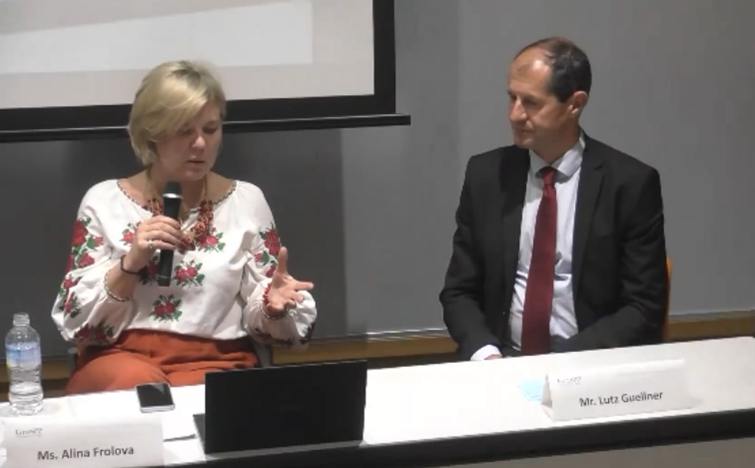
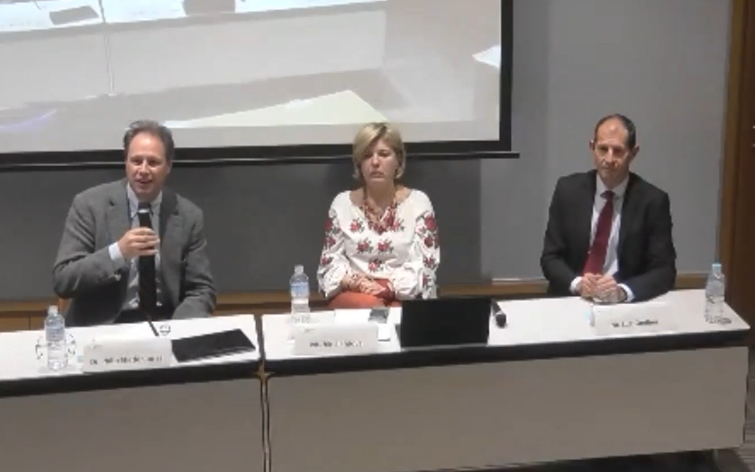
The Strategic Communications Education and Research Unit (SCERU), the Graduate School of Public Policy of the University of Tokyo, and the Delegation of the European Union to Japan have co-organized a third public seminar on November 24th, 2022. Titled “Ukraine’s Strategic Communications: Can words overcome weapons?“,it was moderated by Dr. Philip Shetler-Jones with introductory remarks from Director Chiyuki Aoi. The seminar was attended by in-person attendees and online viewers affiliated with universities, government institutions, international organisations, research institutions, media, and many others.
Synopsis
Since Russia’s brutal invasion on 24 February 2022, Ukraine was faced with the need to organize Strategic Communications to effectively mount defences against the savagery of the aggression. On what principles and modalities were such Strategic Communications organized? What were the lessons learned from this experience? Further, what has been the EU role in assisting Ukraine in terms of Strategic Communications in countering Russian aggression? What were the specific challenges and lessons learned in this partnership?
Ms. Alina Frolova, a prominent practitioner of Strategic Communications in Ukraine, shared her candid assessment of the Strategic Communications employed by the Ukrainian government as a defensive and offensive tool against Russian aggression. Her presentation was followed by the analysis of Mr. Lutz Guellner, the EU official in charge of EU-wide Strategic Communications policy. He critically assessed the EU role in assisting Ukraine in its effort to defend against Russian aggression and how the EU and Ukraine efforts were effectively joined in Strategic Communications to counter Russian aggression.
Moderator
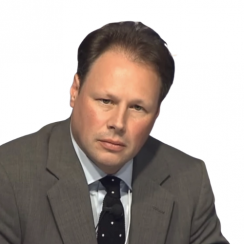
Dr. Philip Shetler-Jones is the Thematic Coordinator for Crisis Management at the EU project Enhancing Security Cooperation in and with Asia (ESIWA). Holding a master’s degree from the Fletcher School of Law and Diplomacy, Tufts University under a Fulbright Scholarship and a PhD from the University of Sheffield on Japan’s post cold war defence and security policy, Philip’s career blends operational, academic and policy experience. After serving in the UK military, Philip served on PKO with the United Nations, European Union and Organization for Security and Co-operation in Europe, Africa, the Caucasus and Eastern Europe. Prior to ESIWA, he led the International Security and Geopolitics program at the World Economic Forum and worked as a Consulting Fellow on the Indo-Pacific at Chatham House. His research and publications focus on peacekeeping, planning, intelligence and geopolitical relations between Europe and Asia. He has served as a consultant at the United Kingdom Ministry of Defence, European Union External Action Service, NATO SHAPE and the ASEAN Regional Forum.
Panelists
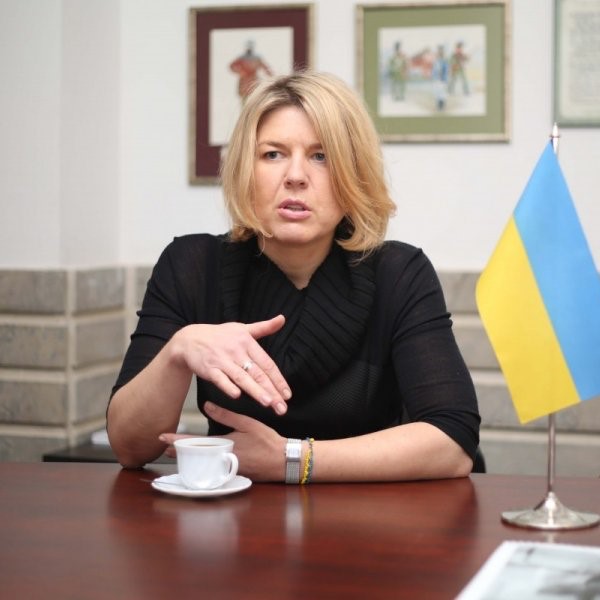
Ms. Alina Frolova is the Deputy Chairperson of the Centre for Defence Strategies (CDS), a Ukrainian security think tank involved in security studies, defence policy research and advocacy. Previous to her current position, she served as the Deputy Minister of Defence of Ukraine (2019-2020) directly in charge of Strategic Communications. Prior to that, she served as Adviser to the Ministry of Information Policy (2016-2018) and similarly, Adviser to the Ministry of Defence (2015-2016) where she facilitated the implementation of strategic and government communications amid the ongoing conflict. She is also the founder of the Invictus Games Team Ukraine Project, Stratcom.UA and the Ukraine Crisis Media Center.
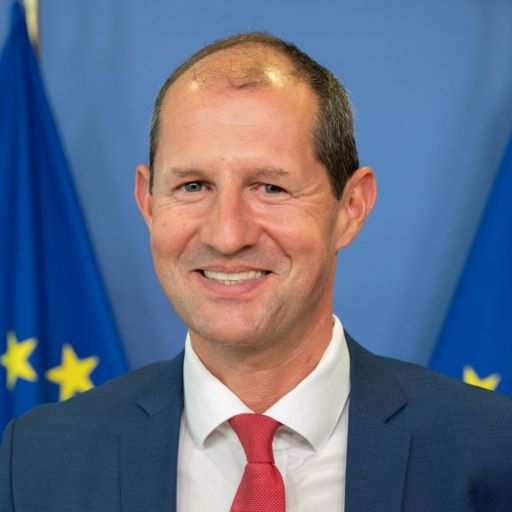
Mr. Lutz Guellneris Head of Division for Strategic Communications and Information Analysis in the European External Action Service. He leads a team of about 40 persons dealing with issues related to disinformation and foreign manipulative interference. In his work, he focuses on addressing disinformation threats for the EU and surrounding regions.
Prior to his current position he served as Head of the EEAS’s foreign and security policy communication team (2017– 2019) and as Head of the European Commission Directorate General for Trade communication team (2013– 17). He was also Deputy Head of the Trade Strategy Unit and responsible for the coordination of EU-US trade and economic relations.
In 2009 and 2010, Guellner was spokesperson for the High Representative of the European Union for Foreign Affairs and Security Policy, Catherine Ashton. He was also the Commission’s spokesperson for trade policy. In previous positions, he oversaw economic relations between the EU and Russia.
Guellner studied political science and international relations at the Free University of Berlin and the Institut d’Etudes Politiques (Sciences Po) in Paris. He is teaching trade policy and EU foreign affairs at the post-graduate studies programme for European studies in Berlin.
Introductory Remarks
Director Chiyuki Aoi, PhD Professor, GraSPP/SCERU




